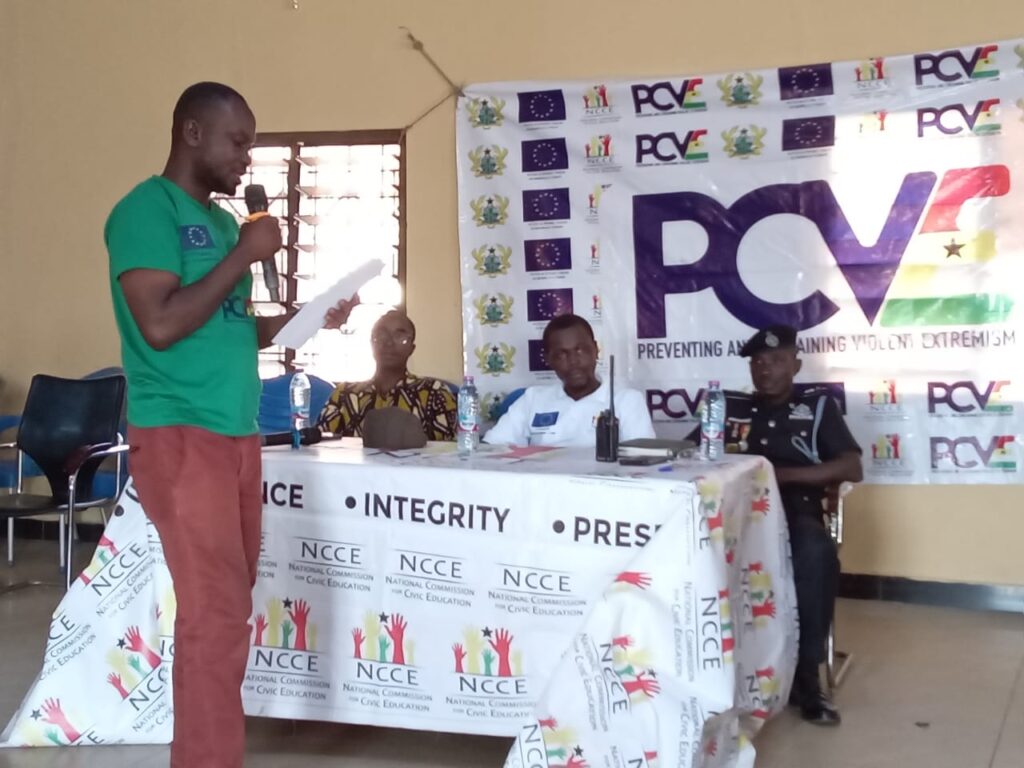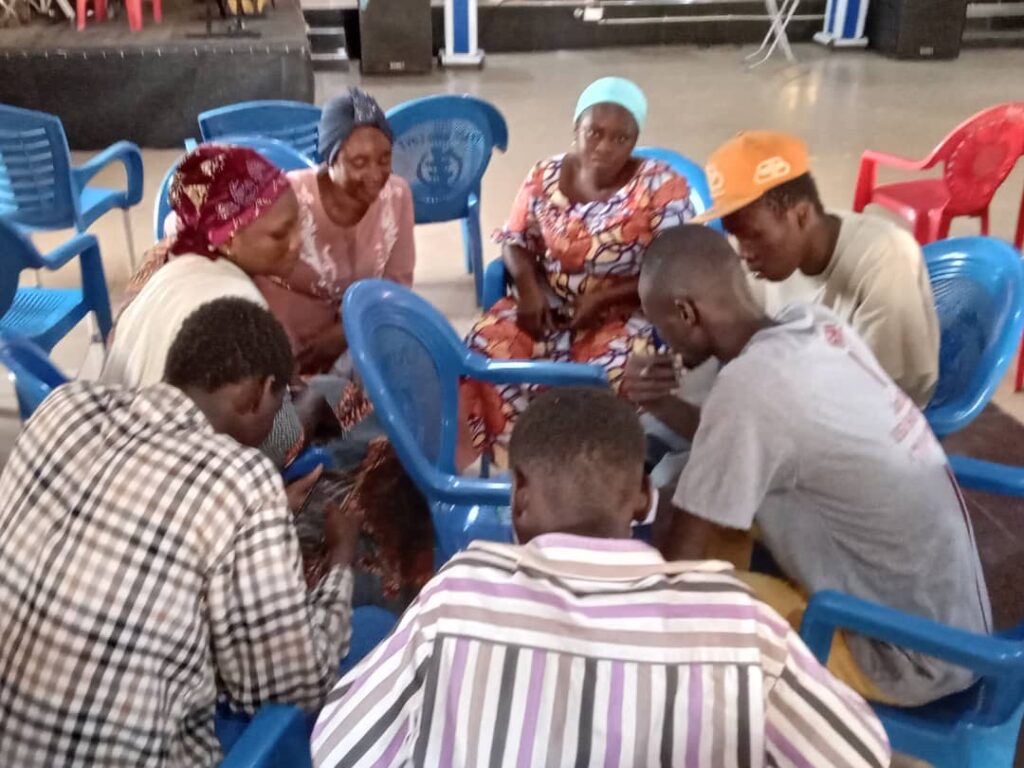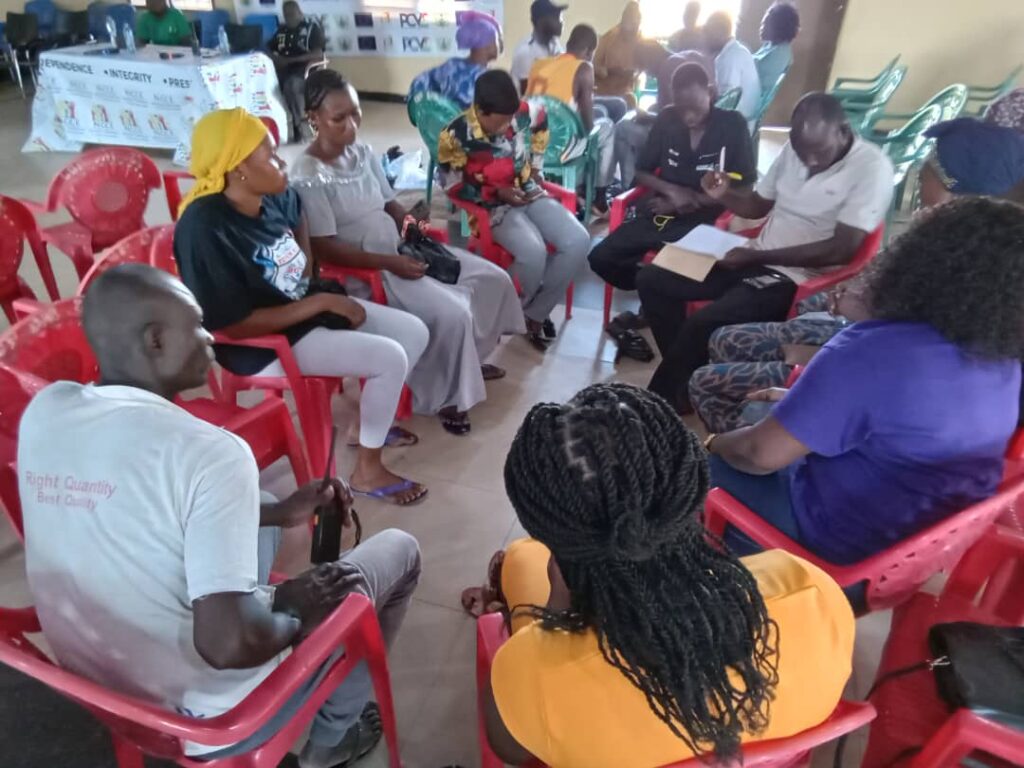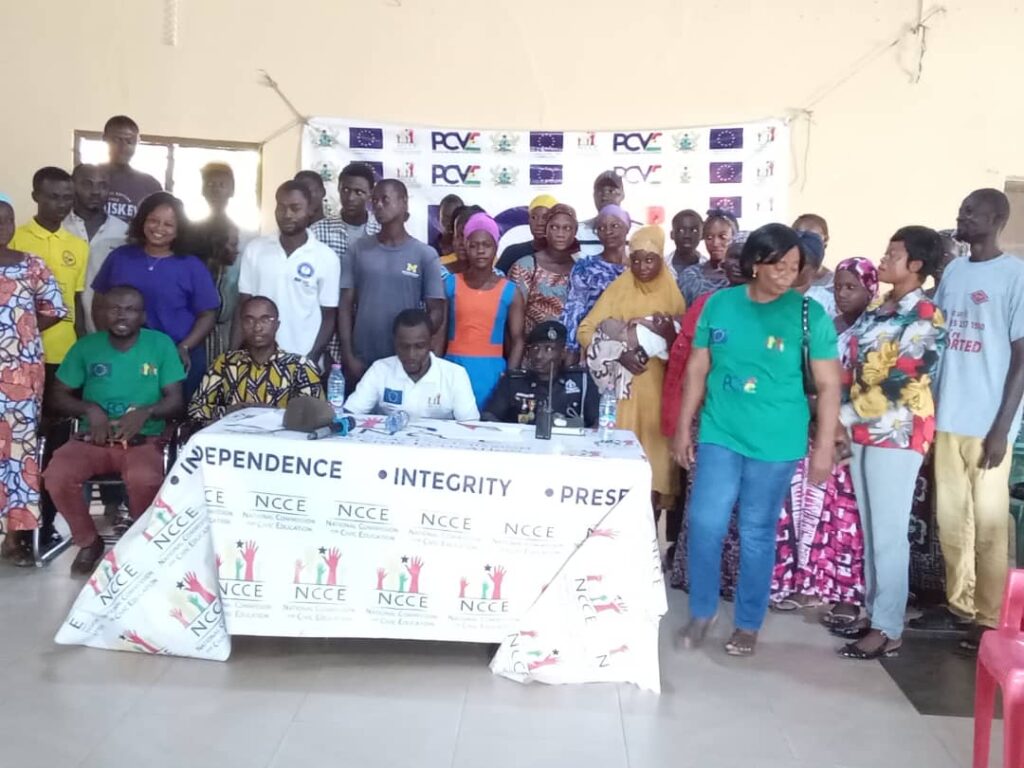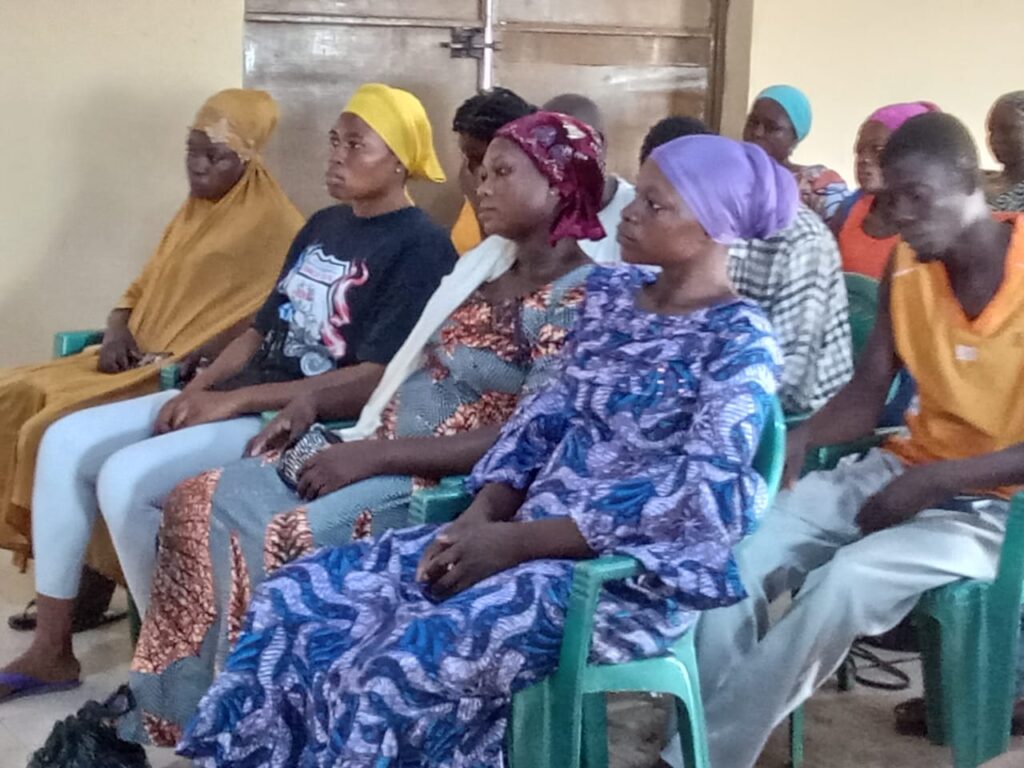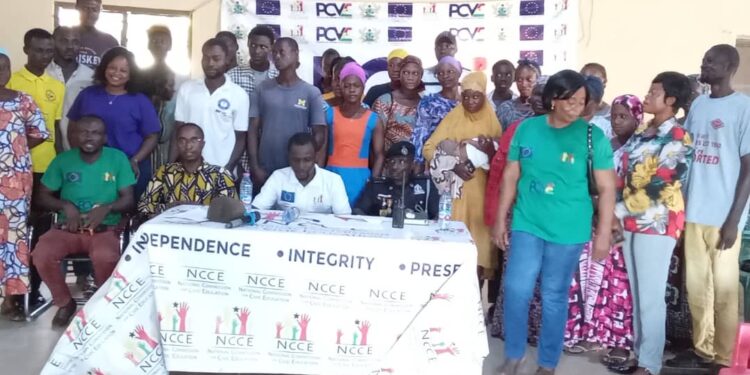Mr Mohammed Ibrahim, West Gonja municipal director of the National Commission for Civic Education (NCCE) says Violent extremism (VE) still poses a significant threat to global security and societal harmony. A particularly alarming trend is the deliberate targeting and radicalization of young people by extremist groups. This issue becomes even more pronounced during election periods, when political and social tensions are heightened, and the youth are more engaged in political discourse.
Mr Mohammed Ibrahim said this during NCCE’s engagement with various groups at the Church of Pentecost, Damongo, in the West Gonja municipality of the Savannah region.
He noted that Extremists exploit the heightened tensions, using sophisticated propaganda and recruitment strategies to influence and recruit young individuals especially on social media.
The danger is that young individuals who are affected may not be aware of what is happening because radicalization is a gradual process. Despite the fact that anyone can become an extremist, young people who are in quest of a sense of identity, purpose, or belonging may be more susceptible to recruitment into violent extremist groups.
As such, there is a need for civic engagements that foster a sense of unity, belonging, and patriotism in the youth to prevent violence and radicalization among them during the 2024 election.
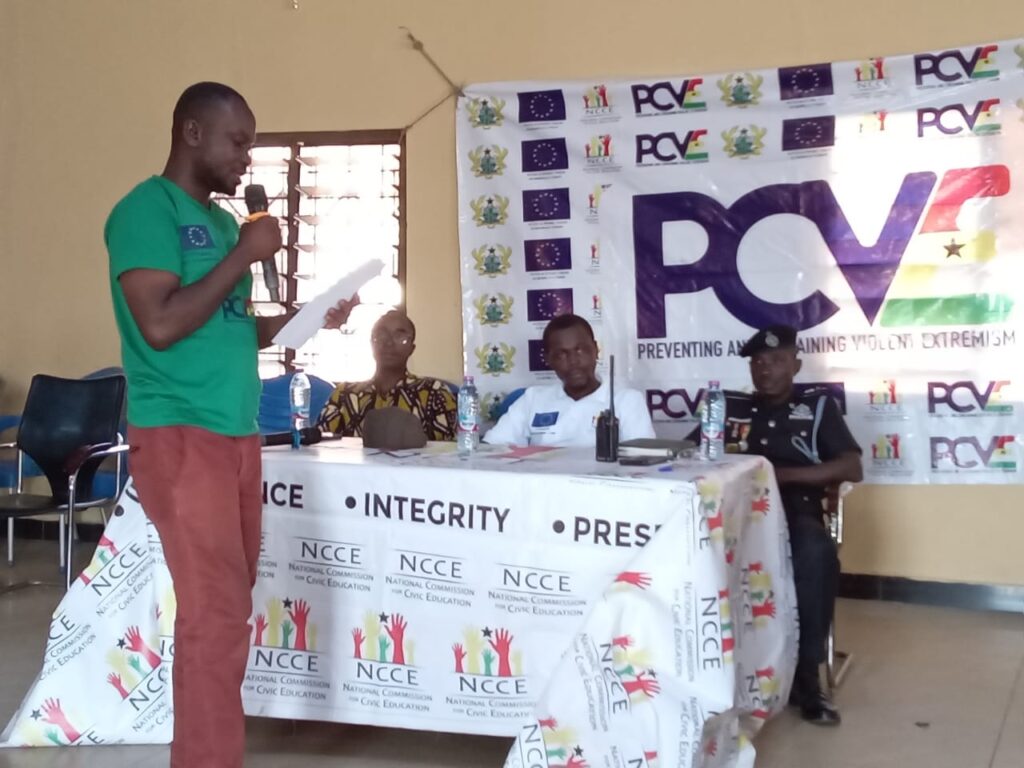
The NCCE, under the European Union (EU) Supported Preventing and Containing Violent Extremism (PCVE) project, is engaging community members, youth and women groups, security agencies, schools, religious and traditional leaders, among others to sensitize the citizens about the activities of Violent Extremism.
“In line with the main objective of PCVE, which is to Prevent and Contain Violent Extremism through Promotion of Social Cohesion, Peace and Tolerance in the five (5) northern regions and other hotspots in Ghana, these engagements with the youth groups are aimed at ensuring that the youth understand the negative consequences of joining violent extremists’ groups and appreciate the legal framework that bars the activities of violent extremist and terrorist groups”.
He added “the engagements with youth groups sock to augment their understanding of peace building mechanisms in Ghana. The engagements will inculcate in the youth, the spirit of patriotism, the awareness of civic responsibility, inclusive values, social recognition and invoke a sense of belonging to their own immediate community. The engagements will also improve their knowledge and attitude on the culture of tolerance and non-violence to become Ambassadors for Peace. The essence of this action is to tap into the energies of the youth and use it positively to promote peaceful coexistence and shun violent extremism in Ghana”.
The NCCE also adopts community-based mechanisms for countering violent extremism such as Identifying early warning signals, community surveillance.
The engagement also provided insights into the need for peaceful coexistence and inter-faith tolerance,
triggers and effects of violent extremism,
awareness of VE at worship centres/workplaces/markets/lorry stations,
online radicalisation (Mis/disinformation and fake news),
ways to resist and withstand the appeal of terrorism, and what to do during violent attacks.
Three (3) groups were formed by participants. Each group brainstormed and made presentations on the three topics; one for each.
- Identify and discuss 5 signs that show a fellow young person is being radicalised.
- How do you identify fake news
- List and discuss 5 importance of neighbourhood Watch/Community patrol.
ASP Charles Aniagyei, West Gonja Municipal Police Commander noted that it’s necessary to stay safe and resilient whilst strategizing in the fight against Violent Extremism and Terrorism.
ASP Charles Aniagyei said the world is unpredictable and therefore preparedness and resilience are crucial for survival. Violent attacks and terrorism pose significant threats to our safety and well-being and so it is everyone’s duty to remain vigilant and report suspicious characters to the security services.
He appealed to the citizens to work closely with the security services and opinion leaders to help the country stay safe because the security services alone cannot do it without vital information from the citizens.
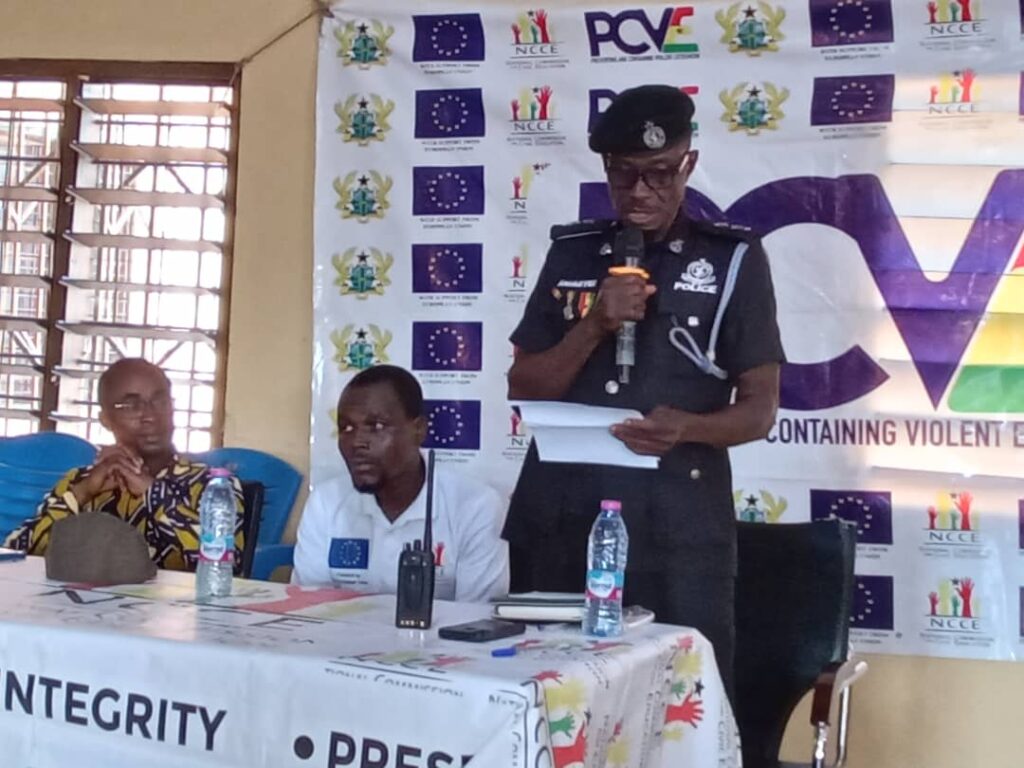
ASP Charles Aniagyei urged citizens stay calm and assess situations during violent attacks.
Identify escape routes and safe zones, hide or evacuate from the location, communicate with authorities (call emergency services), provide basic first aid (if necessary), among others are all necessary measures to execute during violent attacks.
He assured that, the security services together with NCCE and other key stakeholders will work to make sure citizens are empowered with essential skills and strategies to prevent, prepare for, and respond to violent attacks and terrorism, and ensure safety and well-being.
This will be executed through community engagements across the country.
Pastor Kenneth Kwakye Marfo, Head Pastor of the Church of Pentecost, Damongo, echoed the need to fact check information before sharing with others. Fake or false information is dangerous and can mislead, cause fear and panic, injuries and in some instances, death.
He highlighted the need to remain vigilant, tolerant and report suspicious situations to the right stakeholders for early attention to sustain the peace in Ghana.
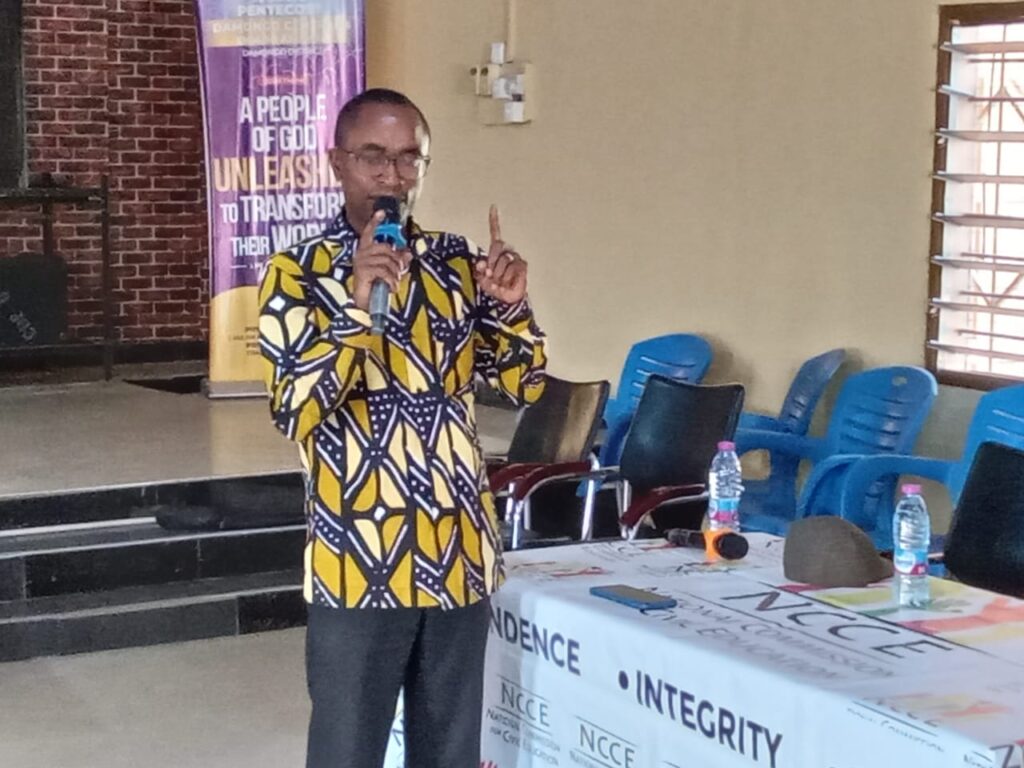
Pastor Kenneth Kwakye also advised the youth not to allow politicians use them for their narrow interest as against national interest because Ghana is, all what we have.
Some participants who spoke to this source during the program commended the NCCE and their sponsors for the engagement and assured that, what has been learned will be shared with family and friends to help promote peace and security in Ghana.
Abdulai Zulkaninu
